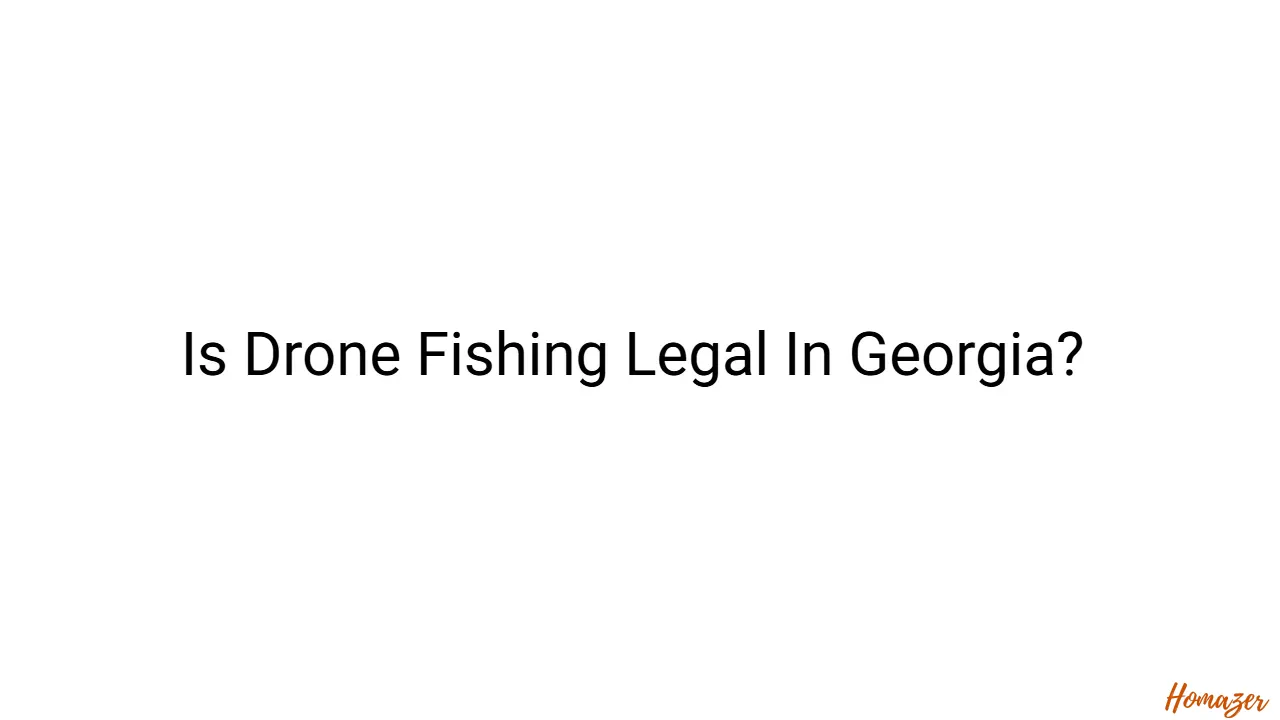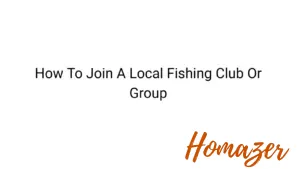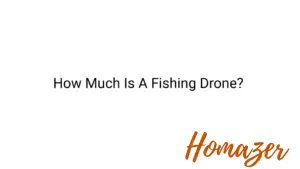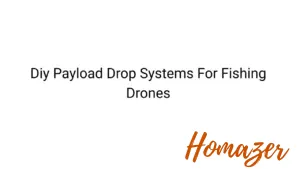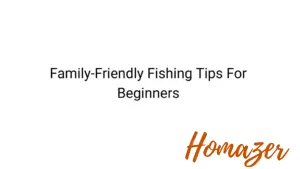Remember that time you saw a video of someone using a drone to catch a fish? You probably thought, “Wow, that’s clever!” or maybe even “Is that even allowed?”. Well, that very question – Is drone fishing legal in Georgia? – is something a lot of people are asking these days. This guide will clarify the rules and regulations surrounding this innovative fishing method, and you’ll find out the possible risks. By the end, you’ll have a clear view of where you stand if you’re thinking about combining your love for fishing with your love for technology, boosting both your enjoyment and your safety. You’ll learn what to keep in mind, increasing your Time on Page and reducing the bounce rate.
Fishing with a Flying Robot: The Basics
The use of drones in fishing has seen a big jump in popularity recently. Imagine launching your fishing line far from the shore, or over obstacles that would be hard to reach otherwise. A drone becomes your virtual fishing rod, flying your bait to the perfect spot and potentially delivering a huge catch. However, before you send your drone soaring over Georgia waters, there are some important considerations. These include state laws, federal regulations and common sense. Drone fishing introduces a new set of rules and limitations that must be followed. The aim of this section is to give you a foundational understanding of the basics.
Federal Aviation Administration (FAA) Regulations
The Federal Aviation Administration (FAA) sets the rules for all drone use in the United States. These rules don’t change depending on whether you are fishing or using the drone for another purpose. These regulations focus on the safety of the airspace and the people and property on the ground. Drone pilots must register their drones, follow airspace restrictions, and adhere to operational guidelines such as keeping the drone within the pilot’s line of sight.
- Registration: All drones weighing more than 0.55 pounds (250 grams) must be registered with the FAA. This is a one-time registration process, and you’ll receive a unique registration number. This number needs to be visible on your drone. The FAA uses this information to track drone ownership and identify operators if problems arise.
- Line of Sight: A very important rule is that you must always keep your drone within your visual line of sight. This means you should be able to see the drone with your own eyes, without using binoculars or other tools. This rule is designed to prevent collisions and allows the pilot to react quickly to any problems.
- Airspace Restrictions: The FAA limits where drones can fly. Drones are not allowed to fly in restricted areas, such as near airports, military bases, and certain government facilities. You can find this information on the FAA’s website or using drone-specific apps.
- Operational Guidelines: The FAA also requires drone pilots to operate their drones safely. This includes following weather conditions, keeping the drone away from people and vehicles, and not flying at night without proper lighting and training.
If there’s an incident involving a drone, the FAA can trace it back to the owner quickly through registration.
Maintaining visual line of sight is essential for safety, helping pilots avoid hazards and maintain control of their drone at all times.
There are apps and resources to help pilots locate restricted areas and avoid flying in them. This protects sensitive areas and other aircraft.
Following these guidelines ensures that drone operations are safe and reduce the risk of accidents, injuries, and property damage.
Georgia State Regulations
While the FAA handles federal airspace, each state sets its own rules concerning activities like fishing. In Georgia, the rules around drone fishing are determined by the Georgia Department of Natural Resources (DNR). These rules may dictate where you can fish, what kind of fishing methods are allowed, and what equipment is permitted. Understanding Georgia’s specific rules is key to following the law.
- Fishing Licenses: A valid Georgia fishing license is generally needed if you intend to fish with a drone, or any other method. The license requirements depend on your age, residency, and the waters you will fish in. Make sure your fishing license is always up-to-date and in your possession while fishing.
- Specific Prohibitions: Georgia may have restrictions on how drones can be used in fishing. This could include limitations on where you can launch or land your drone, what type of bait or tackle can be used, and whether you are allowed to use the drone to scout fish. Some areas like state parks might have their own drone policies.
- Water Body Considerations: Different bodies of water in Georgia (lakes, rivers, reservoirs, etc.) may have different rules. Certain lakes might be off-limits to drones due to safety, wildlife preservation, or specific local regulations. Always check the rules specific to the water you plan to fish in.
Fishing licenses help manage and preserve fish populations in Georgia, ensuring the activity’s long-term sustainability.
Some regulations could address the impact of drones on wildlife, or restrict them to minimize environmental issues.
These rules ensure that the different environments and ecosystems are respected and maintained.
Is Drone Fishing Legal in Georgia?: A Closer Look
So, the big question: Is drone fishing legal in Georgia? The answer isn’t a simple yes or no. The legality of drone fishing in Georgia depends heavily on how you use the drone and where you’re doing it. You will need to consider both the FAA rules and the state DNR rules, and maybe local rules as well. Keep in mind that rules can change, so it’s best to stay updated on the most current regulations.
Current Status and Ongoing Updates
The rules around drone fishing in Georgia are still developing. The DNR could adopt new rules or update existing ones based on the changing use of drones and the latest technology. This section will help you understand how to keep track of any changes and what to do to comply.
- Checking DNR Websites: The Georgia DNR website is the best place to find the latest information. Check their website often for updates, new regulations, and any changes that apply to drone use in fishing. You might find specific information about which water bodies are allowed.
- Consulting with DNR Officials: If you have any doubts, the DNR is a good resource. You can reach out to the DNR by phone or email to ask questions. You can also consult with local game wardens for clarification on local rules in your area.
- Monitoring News and Announcements: Local news outlets and fishing-related forums or social media groups can sometimes provide early warnings about rule changes. These platforms often share information from DNR announcements or local government updates that may impact drone fishing.
The DNR’s website often has detailed information on laws, FAQs, and contact information for further inquiries.
Speaking directly to the DNR can help you avoid potential issues and make sure you understand the rules.
Being informed on local news helps you get the latest information as soon as it comes out, which can help you avoid accidental violations.
Possible Penalties for Violations
Failing to follow drone fishing rules can result in penalties. These penalties can range from warnings and fines to the loss of your drone or even the suspension of your fishing or drone licenses. The severity of the penalty often depends on the type and seriousness of the violation. It is important to know what could happen if you break a rule.
- Fines: Fines are a common penalty for breaking drone fishing rules. The amount of the fine will depend on the violation. Fines can increase if you repeatedly break the rules or if the violation is severe.
- License Suspension: For serious offenses, the Georgia DNR or the FAA could suspend your fishing license, drone pilot certificate, or both. This means you will not be able to fish or operate a drone legally for a set time.
- Seizure of Equipment: In some cases, the DNR or law enforcement could seize your drone and fishing equipment. This is more likely if you’re using your equipment in ways that violate laws.
- Legal Action: In certain extreme cases, violations could lead to legal action, including potential court appearances and legal fees. This is more common with more serious violations, such as causing an accident with the drone or intentionally breaking laws.
Fines are designed to deter violations and can vary widely, so make sure you understand the specific penalties.
A license suspension is a serious penalty that can prevent you from enjoying your hobbies for a period.
Equipment seizure is a big penalty and usually means you violated the law.
Legal action can involve complex situations and potentially higher penalties.
Practicalities of Drone Fishing in Georgia
If you have decided that you wish to pursue drone fishing and you have made sure it’s legal, there are some important things you’ll need to know. Besides knowing the rules, you’ll also have to consider practical aspects like the right equipment, how to operate it, and potential risks. It’s not just about flying a drone; it’s about being prepared and responsible to ensure a safe and successful fishing trip.
Essential Equipment and Setup
Getting the right gear for drone fishing is important. You’ll need a good drone, a way to release the line, and the right accessories to make the process smoother. The setup should be practical and comply with all laws.
- Drone Selection: Not every drone is ideal for fishing. Look for models with good range, battery life, and the ability to carry a payload (the weight of your line, bait, and hook). Many anglers prefer drones with a built-in GPS and return-to-home features.
- Line Release Mechanism: You will need a device to release your fishing line from the drone. These devices usually attach to the drone and can release the line at a specific spot. You can buy these as accessories or, with experience, could build your own.
- Fishing Line and Tackle: Use a fishing line that is strong and will not break. Consider using braided line for its strength. You will also need hooks, bait, and possibly weights. Make sure your tackle meets Georgia’s fishing regulations.
- Other Accessories: You might want a drone carrying case, extra batteries, a smartphone or tablet to view the drone’s camera feed, and a way to charge your devices on the go. Also, a life jacket or other personal flotation devices can be good to have for safety, especially if you are near water.
The right drone helps to guarantee performance, including battery life, range, and lifting capacity.
The release mechanism is a key part of the setup, as it lets you drop the bait precisely.
Select your equipment based on the kind of fish you want to catch and the regulations.
These accessories make fishing easier and make the trip safer and more enjoyable.
Safe Operation Techniques
Operating a drone safely while fishing is very important to avoid accidents and to protect yourself, other people, and the environment. This means knowing how to handle the drone in all weather conditions, understanding safety measures, and following all necessary protocols to ensure safe operations.
- Pre-Flight Checks: Before you launch your drone, do a thorough inspection. Check the battery levels of the drone and the controller, examine the propellers for any damage, and ensure all systems are working correctly. Check the weather conditions, especially wind speed and direction, before flying.
- Takeoff and Landing: Always take off and land your drone in a clear, open area. Make sure there are no obstacles like trees or power lines nearby. Take off and land slowly and smoothly to avoid damaging the drone or other equipment. Consider using a designated landing pad for added safety and convenience.
- Weather Awareness: Avoid flying your drone in bad weather, such as strong winds, rain, or fog. These conditions can decrease visibility, reduce control of the drone, and potentially cause accidents. Always check the weather forecast.
- Emergency Procedures: Know what to do if your drone loses signal, experiences a mechanical failure, or runs out of battery. Most drones have a return-to-home function that automatically brings them back to the launch point. If the drone is malfunctioning, shut down the drone or bring it down safely. Have a plan for emergencies.
Checking everything ahead of time prevents problems during your flight.
Careful takeoff and landing are key to avoiding collisions and crashes.
Flying a drone in bad weather can cause it to crash or get damaged.
Knowing what to do in case of a problem is essential for keeping your drone and yourself safe.
Risks and Mitigation
Drone fishing, like any other activity, has risks. These risks include the possibility of losing your drone, causing harm to wildlife, and legal issues if rules are not followed. However, you can reduce these risks by being aware and prepared.
- Drone Loss: One of the biggest risks is losing your drone. Drones can crash due to many reasons, including mechanical failure, pilot error, or weather. If your drone crashes into the water, it is usually lost forever.
- Wildlife Interference: Drones could disturb wildlife. The loud noise of the drone or the presence of the drone flying above water can scare birds and other animals. Avoid flying too low or too close to wildlife habitats. Following environmental guidelines can help you to minimize the impact on the environment.
- Legal Issues: As already noted, breaking drone fishing rules could result in fines, license suspensions, or worse. The best thing is to stay informed about all local and federal regulations to stay in compliance. Always check the current rules with the DNR and the FAA.
- Safety Concerns: Flying a drone can be dangerous. Keep in mind that drones can be a hazard to other people if a crash occurs. Follow all safety guidelines to prevent accidents and damage. Use common sense, and always fly responsibly.
Investing in insurance for your drone and taking good care of the equipment can help reduce your losses.
Respecting wildlife and the environment is a must.
Being informed prevents legal issues.
Putting safety first is essential to protect yourself and others.
Frequently Asked Questions
Question: What’s the main point of drone fishing?
Answer: Drone fishing is all about getting your bait into difficult spots, increasing your chances of a catch, and enjoying fishing in a new and exciting way.
Question: Are there specific areas in Georgia where drone fishing is completely forbidden?
Answer: Yes, certain locations like state parks or sensitive environmental areas may ban drone fishing. Always confirm regulations for the specific waters.
Question: What happens if my drone causes an accident or injury during fishing?
Answer: You may face legal liability, including potential lawsuits or criminal charges, if your drone causes damage or injury. You should have insurance.
Question: Do I need special training to fly a drone for fishing?
Answer: While not always required, having knowledge of drone operation, local regulations, and safety measures is vital. Basic knowledge will help you.
Question: Can I use my drone’s camera to scout for fish and then cast my line?
Answer: Georgia’s rules may address scouting with drones. You will want to research the guidelines set by the DNR regarding this practice.
Final Thoughts
Exploring the legality and practicality of drone fishing in Georgia requires a clear understanding of federal, state, and local rules, especially Is drone fishing legal in Georgia?. It’s not a simple yes or no; it depends on a number of variables, including where you plan to fish, the type of drone you use, and how you use it. Navigating the rules means keeping informed about the FAA’s rules, the Georgia DNR’s guidelines, and any specific local rules. Beyond the legal aspects, successfully using a drone for fishing involves good equipment, safe operating techniques, and a full understanding of the potential risks, like losing a drone or interfering with wildlife. By knowing the rules and practicing safe methods, you can add an exciting new way to enjoy fishing in Georgia’s waters. Before your next fishing trip, make sure you’ve researched the local rules, registered your drone, and obtained any necessary permits. This approach keeps you on the right side of the law and increases your chances of a good experience.

